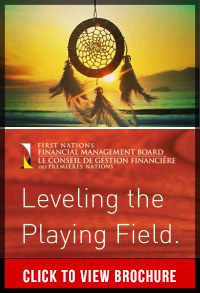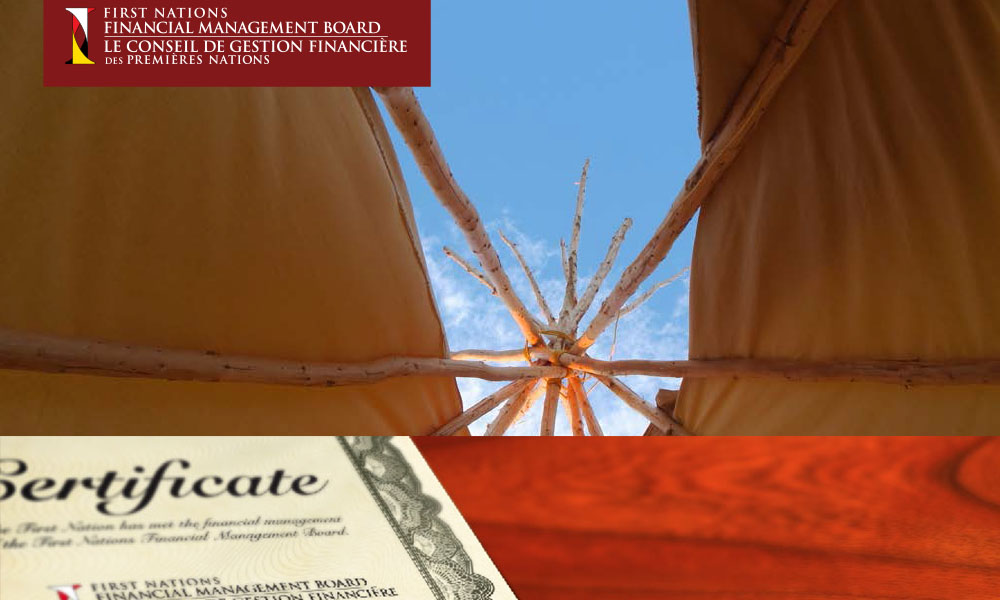Leveling the Playing Field
By Anna Guy
 The fact is, access to capital is critical to building communities, but historically, First Nations governments have not had access to the capital markets or the ability to leverage their own revenue streams. The federal, provincial, and municipal governments have always had these abilities, creating an unequitable environment for economic progress.
The fact is, access to capital is critical to building communities, but historically, First Nations governments have not had access to the capital markets or the ability to leverage their own revenue streams. The federal, provincial, and municipal governments have always had these abilities, creating an unequitable environment for economic progress.
The First Nations Fiscal Management Act (FMA), a First Nation’s led initiative, was established to put First Nations governments on the same playing field as other governments in Canada. The First Nations Financial Management Board (FMB) is one of three First Nation institutions created under the FMA. The FMB supports First Nations in building sound governance processes and provides independent certification in the areas of financial management and financial performance.
Through services and expertise in financial administrative law, capacity development, and standard-setting activities, the FMB works to empower First Nations governments as communities to raise revenue through long-term, low-rate borrowing through mainstream debenture instruments on the open market accessible through the First Nations Finance Authority (FNFA). The result has been First Nations governments are empowered to access longer terms and better interest rates—in other words, the same rates and terms other governments have long had access to. “Having the pathway to access and use their land, to leverage these resources, is a new tool for First Nations. The FMB is here to assist those First Nations communities who choose to opt into this process,” says Executive Chair Harold Calla.
“Our entire certification process and framework is founded in a law passed by First Nations, that is consistent with standards we have developed—all of which have been vetted by rating agencies and investment banks that allows the FNFA to come out of the gate with investment-grade credit rating,” says Calla. “For the first time, First Nations have access to capital at the same cost as other orders of government.”
Low rate borrowing isn’t the only benefit of certification. Equally as important, the FMB certification is a tool to improve governance structures within a community. “We have a lot of clients coming to us who may not need to or want to borrow funds, but they can still become a client and improve their government structure and improve the transparency and accountability within council,” says Calla.
Examples of the FMB’s success are easy to find—at this date, over 200 First Nations communities have opted in to participating in the FMA. A number of those communities are working with the FMB—112 have enacted a financial administration law and, to date, 93 have completed the Financial Performance Certification process.
The Membertou First Nation, one of five Mi’kmaq communities in Cape Breton, was one of the first to receive a Financial Performance Certification from the FMB. As an immediate result of that certification, Membertou First Nation was able to refinance a number of short-term loans it had from major financial institutions, resulting in savings of nearly $1.7 million annually in debt-servicing costs. In addition to refinancing existing debt, they also borrowed through the FNFA to fund other projects and initiatives in their community.
First Nations governments’ abilities to implement and sustain good financial management is emboldened through the FMB’s capacity building initiatives. Through strengthened human resource capacity, the financial administration of any government is improved—and through Individual and organizational capacity development resources, the FMB offers support to First Nations governments in this area.
The FMB is a non-profit institution that provides a range of services at no cost to support financial management capacity building for First Nations across Canada. The FMB provides presentations to First Nations interested in its tools and services.
For more information on the FMB, please visit www.fnfmb.com or call 1.877.925.6665.






